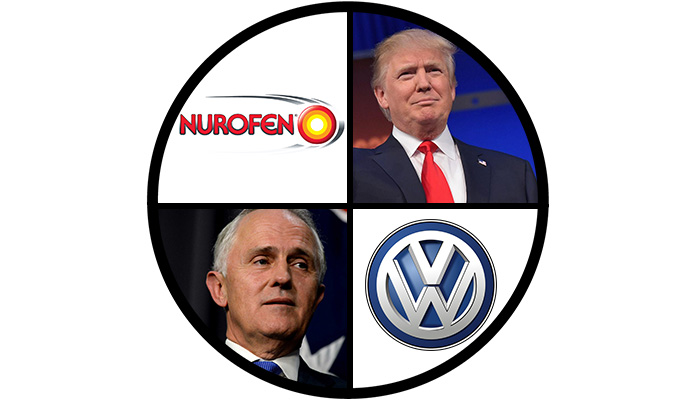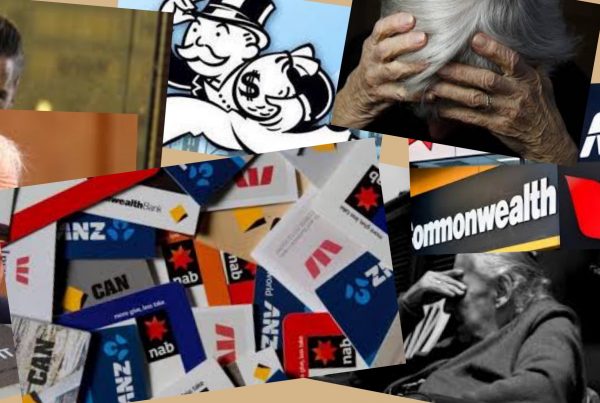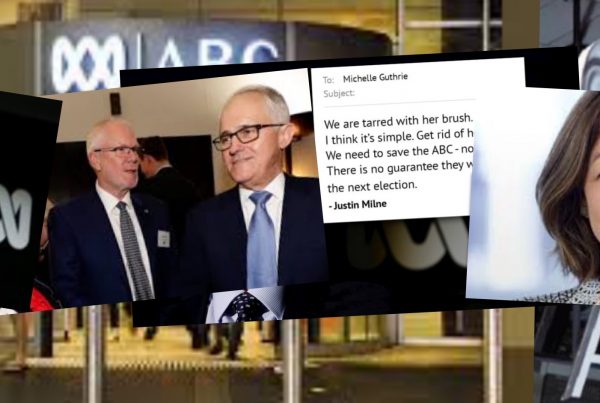Do what you say you are going to do, and then some. It’s so obvious to almost all of us: parents, employers, employees.
Here are two deliverables to watch:
![]() “I will build a great great wall on our southern border, and I will have Mexico pay for that wall,” Donald Trump.
“I will build a great great wall on our southern border, and I will have Mexico pay for that wall,” Donald Trump.
![]() “We need to have in this country, and we will have now, an economic vision, a leadership that explains the great challenges and opportunities that we face,” Malcolm Turnbull.
“We need to have in this country, and we will have now, an economic vision, a leadership that explains the great challenges and opportunities that we face,” Malcolm Turnbull.
Our job, as public relations pros is to manage-up and manage-o ut. Up by ensuring our front-people announce realistic commitments, and keep them. Out by keeping our audience informed.
ut. Up by ensuring our front-people announce realistic commitments, and keep them. Out by keeping our audience informed.
So for me, it’s intriguing to know that behind each high level politician above is a small army of advisors, apparently failing their leaders. The breach of trust with politicians is repeated so often now that watching them fail has almost achieved spectator sport status. Practically all that’s missing are the odds with Sportsbet.
And likewise for many businesses. At Volkswagen it’s inconceivable, in my opinion, that the ‘defeat device’ was a one-off invention by a couple of engineers and not the product of much broader cultural integrity issues.
And who resigned, rather than bow to the decision, when Reckitt Benckiser in Australia decided to make the false and misleading claim that some Nurofen tablets were designed to target sites (separate tablets marketed on the untrue claim they would specifically target back pain, period pain, tension headaches and period pain).
Public Relations: Losing is an option
So now trust is hard won when the status quo is for leaders to be flexible with their integrity. And I believe it’s our job, public relations folks, to put ‘trust’ high on the list of priorities, to manage reputation. When our bosses are rushing from decision to decision, it’s our task to ensure they stay values-driven and focused on achieving commitments.
There is one campaign we ran that on one view was a failure, on another a success.
The project was controversial with community opposition. The company was run by a high quality and community minded executive. The project might have been worth millions.
It eventually failed because at the end of the debate, according to the community, the risks, though small, simply didn’t outweigh the benefits.
Another community would have decided differently.
 It’s a little unfair to simplify the project to such an extent, except to write that it might have been nursed over the line if we had recommended, and if the directors had taken a much more aggressive approach to commitments we probably couldn’t keep. With reputations intact, long-term, not a failure but a win.
It’s a little unfair to simplify the project to such an extent, except to write that it might have been nursed over the line if we had recommended, and if the directors had taken a much more aggressive approach to commitments we probably couldn’t keep. With reputations intact, long-term, not a failure but a win.
Are you thinking we were naïve? Or principled? We say, it’s better to lose on principles than to win on lies.





